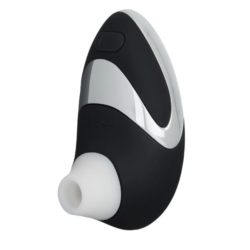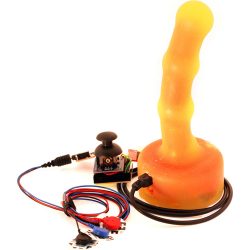Online Sex News: Defendants’ Counterclaims Call ‘Teledildonics’ Patent Invalid
Does anyone own the rights to cybersex?

Remote sex company Vibease has filed a counterclaim against so-called patent troll TZU Technologies. In its suit, it claims the infamous ‘268 patent doesn’t have the grounds to control the market for Internet-controlled sex toys.
(UPDATE 10/16/2015: The makers of the RealTouch, Internet Services, LLC and WMM Holdings, LLC, filed a near-identical counterclaim on October 12, with the same legal representation as Vibease. You can read the document here.)
Last July, sex tech aficionados around the web cried out over the alleged patent infringement brought against six remote sex companies. The patent owned by TZU Technologies governs the use of sex toys that communicate over the Internet.
Vibease first filed a counterclaim denying it had violated “any valid and enforceable claim” in September. On Friday, it amended its submission to further outline why the ‘268 patent fails to meet patentability requirements.
The company’s legal argument largely focuses on debunking claim 40 of the patent, which is:
According to Vibease’s legal counsel, Lewis Roca Rothgerber LLP, this concept is too abstract to be counted as intellectual property:
It also points to the CyberSM system [NSFW], a telepresence experiment from 1993 that transmitted sexual touch over phone lines, as proof the ‘268 patent does not cover an original invention.
The full counterclaim is available to read here.
More legal moves from the defendants
Vibease co-founder Dema Tio told Future of Sex that the lawyers will be meeting with the judge in December. He said he was also put into contact with his current lawyers at Lewis Roca Rothgerber LLP through the help of Comingle, another sex tech company facing legal action from TZU Technologies for allegedly infringing the ‘268 patent.
Andrew Quitmeyer of Comingle told us his company has also gained legal representation:
While it looks like legal action has just begun to heat up between Vibease and TZU Technologies, a judge recently dismissed charges against Kickstarter. The crowdfunding platform was part of the initial round of lawsuits, because it had featured haptic sex device Frebble, created by Holland Haptics, on its site.
Joe Mullin of Ars Technica reported on the development last week:
Kickstarter refused to pay a “nuisance” settlement demand, preferring instead to litigate the case on principle. On the same day Kickstarter was going to file its response to the lawsuit, TZU offered a “walkaway” settlement in which Kickstarter would pay it nothing, as long as it signed a confidentiality agreement. Again, Kickstarter refused.“This is a standard patent troll suit, the kind that, unfortunately, we have faced in the past,” said Kickstarter general counsel Michal Rosenn in an interview with Ars. “We’re fortunate to be in a position where we can afford to take these suits to court.”
Once TZU and its lawyers at the Southern California-based Cotman IP group realized Kickstarter fully intended to fight it out in court, it dropped the lawsuit. The case has been dismissed with prejudice, meaning it can’t be re-filed.
Stay tuned to Future of Sex for more updates on the “teledildonics” patent case.
Image source: bykst
Leave a reply
You must be logged in to post a comment.

















